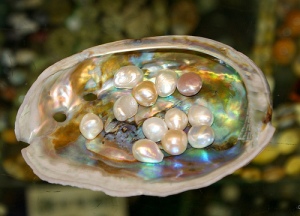 I write poetry – true confession. A rarefied art if ever there was one and you wonder why you do it, what calls you, why it defines you, this thing you are so passionate about but hardly ever talk about.
I write poetry – true confession. A rarefied art if ever there was one and you wonder why you do it, what calls you, why it defines you, this thing you are so passionate about but hardly ever talk about.
Colleen Wainwright (aka the communicatrix) in a recent post, ‘My narrow, narrow bands of interest and utility,’ discusses the search for a defining way to talk about such life passions and goals and the overwhelming drive to write that is for her a connecting thread:
‘To my creative intimates—the fellow strugglers in writing workshop, or elsewhere behind the scenes—I share the only thing I know for sure: that I want to write, and that I am doggedly pursuing it, placing structures where they need to be to support it, addressing what obstacles I can see that might be getting in the way of it.’
I relate very much to these words. Poetry and other writing, the urge to create, the sense of this being an underlying connective piece, the pursuing of ways to further its creation and finding the lifestyle that allows and fosters a writing life are all key themes for me. It is not easy, especially when you have written for a long time and it has not gone very far it seems. Poetry especially can feel like a driven art with not many places to go. It’s easy for it all to go underground for a while in between other things like work and family, but it springs back up eventually. You cannot keep it down forever it seems.
This initiation into poetry started for me in an English class in my second last year of high school at the age of 16. A wonderfully inspired English teacher, Miss Furlong, chose the words of songs by Joni Mitchell, Bruce Springsteen and Harry Chapin to teach us about poetry. We listened to and studied the words of ‘People’s Parties’, ‘Twisted’ and ‘Trouble Child’ from the gorgeous album ‘Court and Spark’ and ‘Jungleland’ and ‘Meeting Across the River’ from the explosive and gutsy ‘Born to Run’ album. We interpreted these words and we wrote our own poems.
I loved these musicians already, I was good at English, I had started scribbling words like poems already, and whether it was the combination of all this or just the right inspiration at the right time, the words came out – in response and in creation. I wrote a poem called ‘Touch the Earth’ based on an elegant book of the same name, subtitled ‘A Self-Portrait of Indian Existence’ with sepia images by Edward S Curtis and statements by North American Indians compiled by T C McLuhan. I wrote a poem of deep connection with these images and the people portrayed, forming and emerging onto paper in a surprisingly sensitive lyric piece capturing what I had been reading, seeing and feeling.
I got 30 out of 30 for my response to the poetry in song of Joni, Bruce and others and 25 out of 25 for my first full-blown poetic effort. I also received some feedback and a question: ‘I can’t fault this, Terri – your perception is startling – far beyond your years’ and ‘From where did you get your inspiration?’ I don’t know where it came from apart from the book and the connection with the words of songs I loved. I don’t know how I was able to articulate responses about relationships or other people’s experiences I had not directly experienced in any way at all. But I found, from this writing experience, a way of accessing an inner knowing. I found a way of using the strength and music of language to interpret and understand the world as I was experiencing it. It opened my eyes to another level of feeling and thought, a latent talent, a lens of creativity I could see the world through. It was there already but the connection needed to be made and I was touched by poetry.
Sometimes you wonder where it will all go as you write, as you journey through crafting better and stronger poems and as you try to find a place for poetry internally and in the external world, such as through publication. I am heartened by Ted Kooser’s closing words in ‘The Poetry Home Repair Manual’ (p157):
‘I wish you luck with your writing, friend, and I hope that you’ll write a few poems that someone will want to show to the world by publishing them. Remember that the greatest pleasures of writing are to be found in the process itself. Enjoy paying attention to the world, relish the quiet hours at your desk, delight in the headiness of writing well and the pleasure of having done something as well as you can.’
I love these words. There is much valuable advice about crafting and publishing poetry in this wise and gentle book but I am calmed by the reminder to enjoy the touch of poetry and the moments that it brings regardless of where it eventually goes. The words of Sylvia Plath also echo the pleasure to be found in poetry and remind of the miracles of poetry reaching the people that it does touch:
“Surely the greatest use of poetry is its pleasure – not its influence as religious or political propaganda. Certain poems and lines of poetry seem as solid and miraculous to me as church altars or the coronation of queens must seem to people who revere quite different images. I am not worried that poems reach relatively few people. As it is, they go surprisingly far – among strangers, around the world, even. Farther than the words of a classroom teacher or the prescriptions of a doctor; if they are very lucky, farther than a lifetime.”
Quoted in Charles Newman (Editor) The Art of Sylvia Plath, 1971, Indiana Uni Press p 320 – from ‘Context’, London Magazine, no 1 February, 1962, p45-46
What are your reflections on the touch and reach of poetry?
Image, Dreams by jecate from flickr and used under a Creative Commons license. See Dreams link for poem accompanying the photo.

Like this:
Like Loading...
 On the 18th floor of a hotel in another city and there is a huge window looking out. It is like ‘Lost in Translation’, that wonderful film with Bill Murray and Scarlett Johansson, where as two people adrift, they spend a strange interlude in Japan, with much time spent looking out over the lights of the city from the hotel.
On the 18th floor of a hotel in another city and there is a huge window looking out. It is like ‘Lost in Translation’, that wonderful film with Bill Murray and Scarlett Johansson, where as two people adrift, they spend a strange interlude in Japan, with much time spent looking out over the lights of the city from the hotel.![]()








‘Get to know your blog and what it’s about and let it develop organically. I have taken that route and it’s been real fun and now I’m getting right into it naturally. You want it to be enjoyable not a chore.’
Yes, I think that is exactly the point: enjoy yourself, your blog and what it’s creating in the process. And that is something I am enjoying immensely and is perhaps the true heart of the matter.
People who honestly mean to be true really contradict themselves much more rarely than those who try to be ‘consistent’.
Oliver Wendell Holmes
Image, Morocco, Marrkech, Pattern by Frank Douwes from flickr and used under a Creative Commons license with thanks